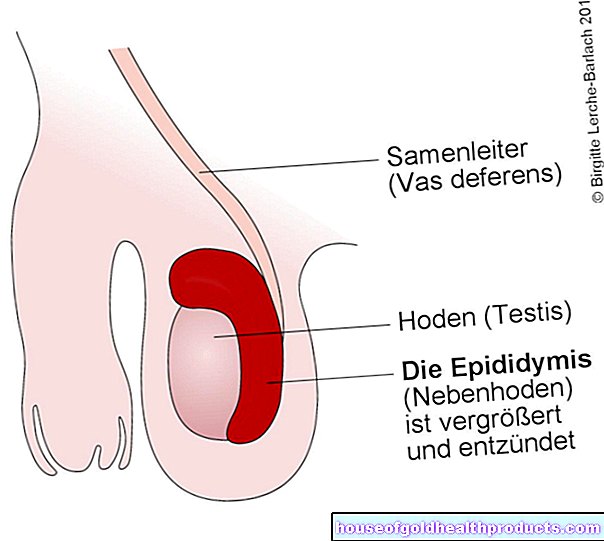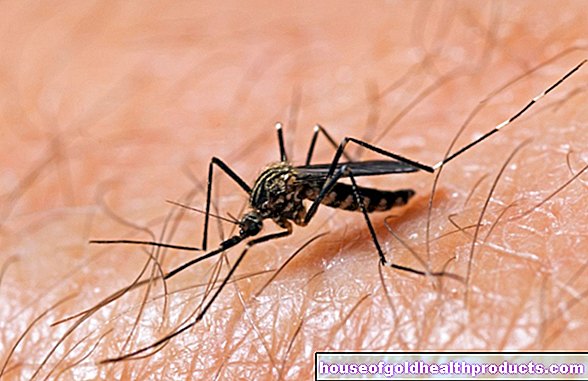"A completely normal phenomenon"
All content is checked by medical journalists.People with Tourette's limbs twitch or suddenly make sounds. The strange-looking tics are much more normal than you might think, says neurologist Prof. Alexander Münchau in a NetDoctor conversation
Prof. Münchau *, anyone who meets a person with Tourette on the street is frightened and thinks “he's crazy”. These people have no psychological problem at all.
No, tics are neurological phenomena. They are similar to normal movements, but appear excessive and inappropriate for the situation.
Then it is rather astonishing that not everyone is “tict”.

In fact, a great many children have tics. In children, tics and other extra movements occur in different phases of motor development, without these necessarily having a clear reference to what is happening in the environment. That in itself is a normal phenomenon. Tics then usually subside, they 'grow out', if you will. With some they persist. Overall, around one percent of all people have tics.
How can we imagine the development of tics?
The following comparison might help you: Tics could be viewed as noise, while targeted, context-related movements would correspond to a clear signal. Noise tends to be more pronounced in childhood. Little by little, we filter out signals that are relevant to us, the noise fades into the background. Adjusting the noise signals does not work so well with Tourette. Nobody knows exactly why. What is certain is that Tourette is largely genetic.
How do we get rid of the tics?
Most of us overcome this phase because in the course of our motor development we learn to adapt our movements to the current situation. Adolescents experience that certain movements are sensible, goal-oriented or useful - and others are not. The latter are blocked over time and filtered out in good time. Movements that fit a situation, on the other hand, are amplified.
What if you have a system for Tourette?
Even then, something can be achieved - at least if you do it early enough. I am not convinced that tic control and focus is right, especially in early childhood. A laissez-faire attitude is more helpful.The point is to turn away from the noise, i.e. the tic, and perceive the actual signal. We are working on scientifically substantiating this method.
In the context of art performances, you try to show that tics are ultimately not that abnormal.
Yes, our basic philosophy is to show that society defines the boundary between normality and illness. This limit is not given by nature. Some of the things we call illness don't appear sick at all in another context. A lot of things in people with Tourette are almost normal, but they contain an element of exaggeration of the normal. As a result, people with Tourette are often marginalized.
Artists and people then stand on stage together with Tourette. Describe your project to us in more detail.
At the Eurovision Song Contest, for example, the performance has changed over the decades. Extra movements - one could also say the excess motor skills - have increased more and more. We have modeled this in our “Neurovisions” project and, in addition to professional singers and actors, also brought people with Tourette to the stage. On the one hand there is the singing, motor-active artist, on the other hand there is the person with Tourette and his extra movements. Gradually the contrast becomes more and more blurred, the border between the two becomes blurred.
The question arises, what justifies us to say: 'This is an artist - interesting! This is a patient with Tourette - he is sick! ‘This question concerns me because it calls into question this limit. If you look at the stage on which artists and tour-makers interact, this boundary becomes cracked. It's the same in everyday life.
Prof. Münchau, thank you very much for the interview.
The interview was conducted by Christiane Fux.
* The neurologist Prof. Alexander Münchau heads the work group Movement Disorders and Neuropsychiatry in Children and Adults at the Institute for Neurogenetics at the University of Lübeck.
DVDs with detailed information and expert interviews on the subject of tics and Tourette are available from the Tic & Tourette Syndrome Association: www.iv-ts.de
Another DVD offer is aimed specifically at laypeople such as those affected, relatives or educators. CME training is available on CD for doctors and licensed therapists.






























